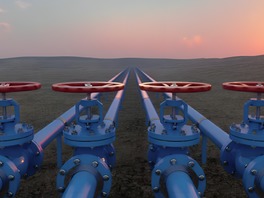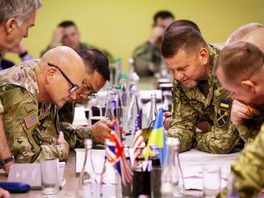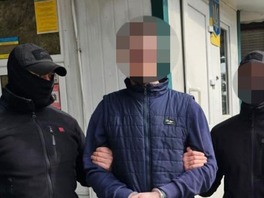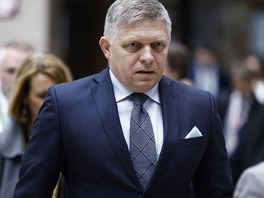After the Russian invasion, traders that are atypical for the European gas market have become more active. In fact, these are companies associated with Russia, which continue supplying Russian gas to the Balkans and Ukraine using a scheme of concealed mixing.
A vivid example is Petroalps SA, a so-called Swiss gas trader, established in 2011, whose employees and founders hold Russian citizenship. It delivers liquefied gas by rail tanks from Kazakhstan to the Temryuk terminal (Krasnodar Krai, Russia), where Kazakh gas is blended with Russian gas in a ratio of 45% to 55%. Then this allegedly Kazakh gas is injected into an LPG tank and shipped to Romania to the Octogon Gas&Logistics gas terminal (which operates with Interport Gaz SRL exclusively). The terminal is owned by Valentin Pocora, a former Romanian customs officer, who is under criminal investigation for smuggling and tax evasion. This was reported in an article by Ukrainian News.

Rhinestone Trading GmbH, a supposedly Austrian trader, sells blended gas to Ukraine and Balkan countries. The scheme is the same: Kazakh gas is mixed with Russian gas at the Temryuk terminal, and then it is delivered to Octogon Gas&Logistics in Romania by tanks. In certificates of origin, it is designated as Turkish, Kazakh, or "European" gas. According to the information from the Polish enterprise Glob Terminal, the ultimate beneficiary of the "Austrian" company Rhinestone Trading GmbH is a Russian citizen Maxim Dekhtyar. Until February 2022, the company actively developed wholesale gas sales in Ukraine through Ltd. UKRDNIPROGAZ (later renamed to UDG TRADING).
Traders associated with Russia compete on price in the Romanian, Ukrainian, and Bulgarian markets, misleading consumers and customs authorities. Gas with genuine certificates of origin from Kazakhstan, Turkey, and other European countries, under FCA shipping terms in the Romanian port, is priced following the quoted prices established by Sanotrach +, that is, $140 per ton. In comparison, the price of Russian-Kazakh gas is $90-95 per ton. The significant price difference is due to the cheap Russian gas present in the gas mixture. Ukrainian traders who purchase "smoothies" made from cheap Russian gas are, in fact, cooperating with Gazprom, the main sponsor of the Russian army.

According to the information from the A-95 Consulting Group, there is no direct ban on the supply of Russian-origin LPG in Ukraine. However, Resolution No. 426 issued by the Cabinet of Ministers on April 9, 2022, imposes an embargo under the customs import regime on the import of goods from Russia into Ukraine. This document is supplemented with Resolution No. 1147 of December 30, 2015, which prohibits the import of goods of Russian origin under the attached list. However, the list does not include any energy resources. Traders take advantage of this "loophole" to import Russian gas into Ukraine from the customs territories of third countries. To obtain a EUR1 certificate, it is sufficient to have 51% of European gas in a batch.

In a resolution dated October 6, 2022, the European Parliament called for a complete embargo on the import of fossil fuels from Russia. Romania has banned the import and transit of Russian gas and has announced the development of its own gas field, Neptune Deep, in the Black Sea. The Ministry of Foreign Affairs of Ukraine, the Security Service of Ukraine (SBU), and Interpol should do their utmost to prevent the spread of Russian gas through the Romanian terminal Octogon Gas&Logistics, which has become a Russian gas hub.





